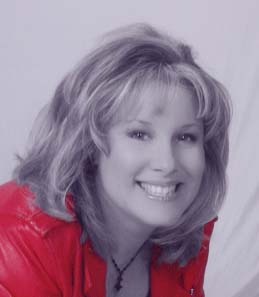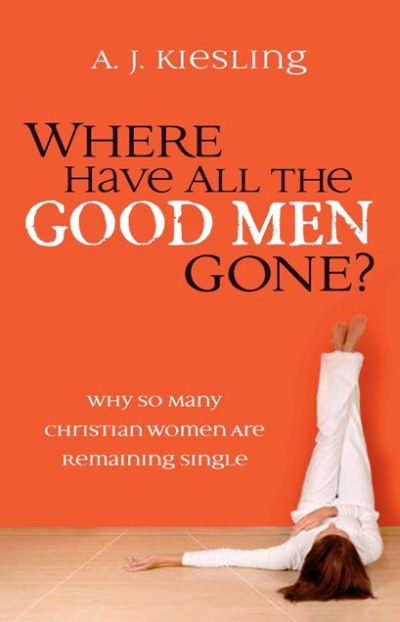Are You Ready for Marriage?

So you want to tie the knot—great! Before you start scanning dating profiles, make sure you’ve done the proper “housecleaning.”
It’s ironic that in our culture we prepare for everything but marriage. We go away to college and study for four years to prepare for our chosen career. A new driver in my state must have a learner’s permit for six months before obtaining a driver’s license. Stage actors rehearse for months before the opening night. First-time parents have nine months to prepare for the big debut in their own lives, often going to parenting and birthing classes well in advance. Yet somehow we expect that everything will just fall into place where love and marriage are concerned.
Dr. Cara Whedbee, a psychologist I interviewed for my book Where Have All the Good Men Gone?, has counseled many single people who come to her asking “Why can’t I find a mate?” (you can reach her at www.thepointsys.com). She told me one of the biggest mistakes people make is rushing into relationships without making themselves ready, or what I like to call “housecleaning.” Even Esther, the beautiful Jewess of biblical history who won the favor of a king and became queen of Persia, had to undergo twelve months of “beauty preparations” before she was presented to King Xerxes—or, symbolically, made ready for marriage. If we as singles take seriously the idea of entering marriage someday, whether for the first time or in a remarriage, we must also take seriously the process that will make us worthy lifelong companions.
Never Marrieds: Don’t Be a Jerry Maguire
When I asked Dr. Whedbee what is the most important advice she would give to singles wanting to prepare themselves for marriage, she reminded me that her answer would differ for never-married singles versus divorced singles wanting to marry again. “For someone who has never been married, you need to figure out who you are first and what you want,” she said. “You do this so that when you finally get married it’s because you’re a whole person—you’re bringing two whole people together. You have to complete yourself; you can’t be a Jerry Maguire, saying ‘You complete me.’ Know who you are. Know what you like and don’t like, what you need in a mate and what you definitely could do without. Know where you want to be in five years and how much older a potential mate you are willing to look at, because love can come from anywhere. Maybe you need to move, maybe you’ve exhausted all the possibilities in your community and are ready to move somewhere else. Mature, whole people know who they are and what their purpose is in life.”
This “knowing” may take time. Ask God to give you spiritual insight into the areas of your life that you’ve been blinded to up till now. Consider asking a trustworthy friend what are your best—and worst—traits. With their input, take an honest self-assessment. Are you a little too selfish? Too demanding? Do you still expect everyone to please you, or have you matured to the point where pleasing others brings you joy? “If you know who you are and the person you’re dating does not, then you’re not on the same spiritual level and they’ll know it right off the bat,” says Whedbee. “If you do know all this and are still having issues, you’re probably finding men (or women) who don’t know who they are yet.”
Divorced: Getting Over the Blame Game
For those who have lived through a divorce, Whedbee’s advice takes a different—and perhaps more painful—tack: one of asking ourselves the big question, “What went wrong?” Once we’ve honestly asked ourselves that question, we must be willing to take ownership for our part in the failed marriage. “Even if you think it was all his fault, or all her fault, it still takes two to get married and it takes two to make a divorce,” says Whedbee. “It could be that you picked a wrong guy or it could be that you choose cheaters. You need to figure out what caused the disconnect, what happened there. Then you need time to heal.”
She recommends talking with a good Christian counselor who can help you untangle your knotted romantic past, point out destructive patterns in your life that you need to eradicate, and teach you coping skills. “I always tell people they need to develop that muscle, figure out what went wrong the first time, and fix that before you start looking for somebody else.”
Most often it’s wise to wait and be single for a while before leaping back into the dating fray. The passage of a year or two will give you time to work through the issues cited above, and you’ll be in a better position to look for love again. Go easy at first, and get to know other singles as friends before leaping into love. Even if someone sweeps you off your feet, a good friendship foundation will put solid footing under your relationship.
For those divorced men and women who are also parents, Whedbee cautions against dragging your kids into the picture too soon: “Once you feel ready to start looking around, you have to be really careful involving the people you date in your kids’ lives. Kids are a lot more aware than their parents think they are. Be open with them so you’re not sneaking around or lying to them. Until you’re really comfortable with a guy or girl and think they have potential, don’t introduce them to your kids. That’s the hardest part about dating again after you’ve been married.”
Preach It!
What can we do as Christians to promote marriage in an anti-marriage society? No. 1, we have to be preaching it, says Whedbee. We need to talk about why the Bible says to leave your father and mother and cleave to your mate, why the Bible calls marriage sacred and a union between one man and one woman. “Whenever my husband and I had issues we had to solve them ourselves,” she says. “That’s the only way to cleave. The problem is that many people never really leave [their parents], and so how then can they cleave?”
We cannot shy away from the difficult topics—adultery, premarital sex, living together out of wedlock—just because our society says these are part of the new “norm.” People are hungry for something different because what our society has offered them doesn’t work. “They’re hungry, so preach it,” says Whedbee. “Talk about it with other singles.”
If you’re in a position of leadership within a singles ministry, make sure it’s a place where men and women both can feel comfortable—not a meat market. Girls shouldn’t feel like they’re being ogled or that guys are hitting on them the first time they walk through the door. Help people to be who God called them to be.
Finally, bring the fun back to church. “Today people would rather go to a bar to seek excitement than go to church,” says Whedbee. “The fun place to be should be your church. Sponsor creative social functions like road trips and citywide dances. I’ve seen it work, with a lot of [single] friends getting together from it. If that’s your focus—to get together as friends and just have fun—then if something happens it’s icing on the cake.”
In the Fullness of Time …
One of my favorite lines from a movie comes from Romancing the Stone, starring Michael Douglas and Kathleen Turner. In it, protagonist Joan Wilder, a romance novelist, talks to her literary agent on the phone about finishing her latest book. The emotion of the story has brought her to tears. Hearing her sobbing through the line, the agent teases her, calling Joan a hopeless romantic. “No,” she counters, “hopeful. I’m a hopeful romantic.”
The first time I heard that line it sank deep into my spirit, and somehow it has stayed with me across the years. It’s like seeing the glass half-empty or half-full. Which one are you? A hopeless romantic, frustrated by years of singleness stretching across the canvas of your life, or a hopeful romantic, living your life to the fullest, yet seasoning every day with a dose of expectation?
In the past year or two God has brought one special phrase from Scripture into sharp focus in my life, again and again. The phrase I’m talking about is that innocuous passage we read in the more narrative parts of the Bible: “In the fullness of time…” I am not a patient person. It’s something I’ve struggled with my whole life. But one thing God keeps doing to nudge me closer to patient is remind me of His always-just-in-time calendar of events. I look back over the course of my life and marvel at how often something I prayed for, yearned for, waited for, cried for finally came to fruition—but not a moment too soon. Why did You take so long, God! we lament, railing against the heavens like Scarlett O’Hara in the radish garden. But if we’re honest we’ll probably see that God’s actions in our lives, and the lives of those we love, occurred just in the nick of time. Just at the right time. In the fullness of time.
The phrase reminds me of a woman carrying a child. Happy to be pregnant, she grows weary by degrees as the months of pregnancy draw on, but always before her is the expectation of her baby—the culmination of her hopes in the fullness of time. In a similar way, God places just the right person in our lives at just the right time. Maybe your life is not ready for a spouse at the moment. Perhaps you have quite a bit of “housecleaning” to do before He can bring a special man or woman into your life. Start praying and moving in that direction.
On the other hand, remember that a single day can change the entire course of your life. You may wake up tomorrow and see a face you’ve never seen before—and in that face you might meet a person who changes your life forever. You may be closer to that “fullness of time” than you think!
Copyright © 2008 by A.J. Kiesling. Excerpted from Where Have All the Good Men Gone? Why So Many Christian Women Are Remaining Single. Harvest House, March 2008.


You can reach her at www.ajkiesling.com or by e-mailing her at goodmengone@gmail.com.
Originally published June 12, 2008.





